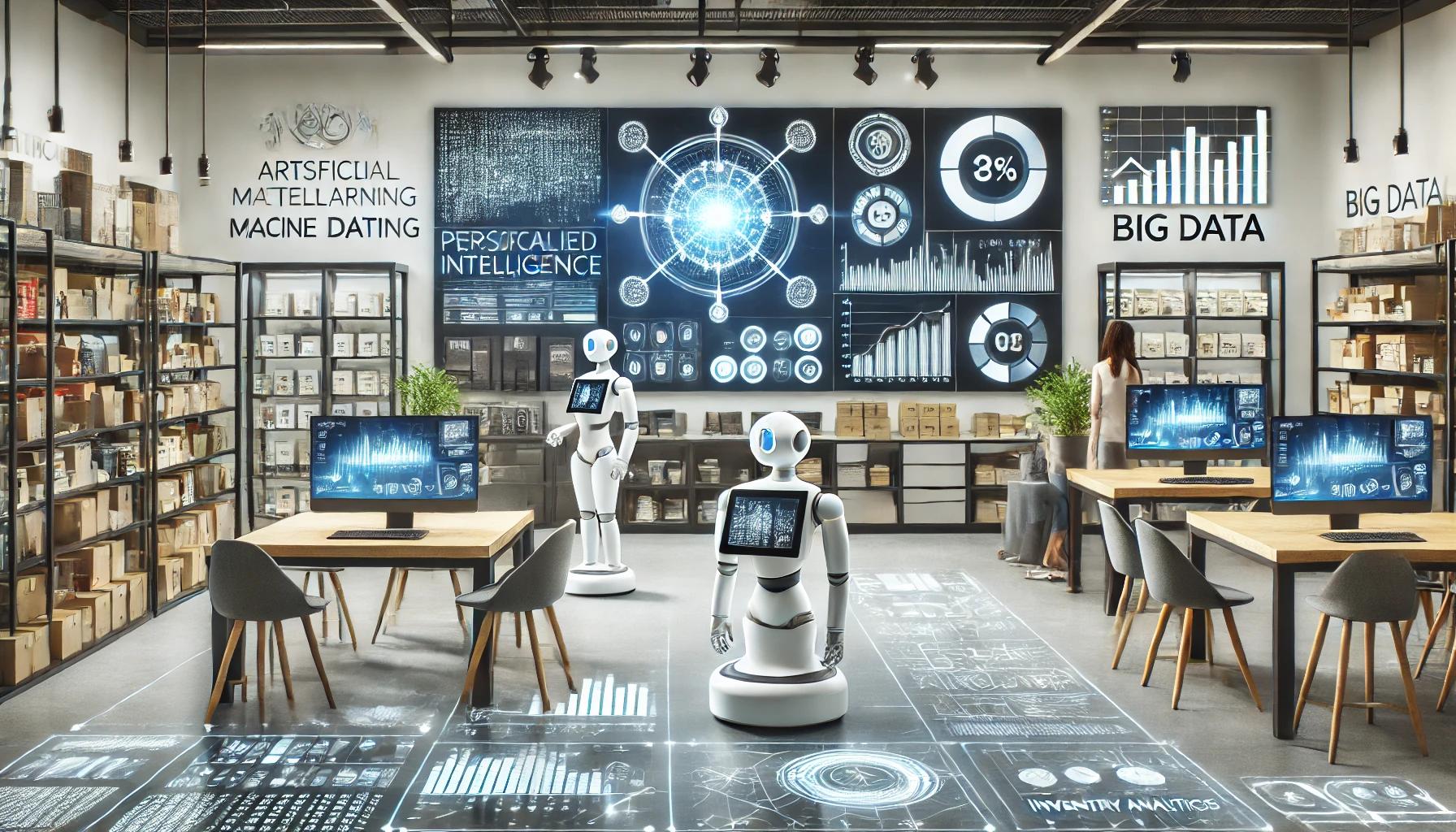Article: The Role of Technology in Commerce: The Impact of Artificial Intelligence, Machine Learning, and Big Data on Trade
Modern commerce is undergoing significant transformation under the influence of technology, which penetrates all aspects of business—from demand forecasting to customer service enhancement. Artificial intelligence (AI), machine learning (ML), and Big Data are three key factors reshaping the industry, helping businesses not only survive but thrive in the age of global digitalization. Let’s explore how these technologies are revolutionizing commerce.
Artificial Intelligence: A Revolution in Retail
AI has become an essential tool for improving efficiency in commerce. Its potential allows companies to enhance customer service, automate routine tasks, and increase the accuracy of sales forecasts. One of AI's main applications is in chatbots and virtual assistants, which can handle orders, answer customer inquiries, and offer personalized recommendations. For example, companies like Amazon use AI to provide tailored product recommendations based on users' purchase histories and browsing behavior, which significantly boosts conversion rates.
According to a McKinsey study, companies that actively use AI in their operations see profit increases of up to 20% due to automation and the optimization of business processes .
Machine Learning: Forecasting and Inventory Management
Machine learning is another tool actively used in commerce to analyze massive datasets. With ML algorithms, companies can predict customer behavior, forecast product demand, and optimize inventory management. Machine learning technologies help minimize human errors and more accurately predict when and in what quantity products need to be restocked.
One example of ML in action is Walmart, which uses machine learning to optimize its supply chains. The algorithms analyze sales data, seasonality, and other factors to accurately calculate inventory needs .
Big Data: Data Analysis for Decision Making
With each passing day, companies are collecting more data on their customers, sales, and market conditions. This data becomes a valuable asset when properly processed and used for decision-making. Big Data allows businesses to analyze customer behavior, identify trends, and adjust marketing strategies accordingly. Retailers, for example, can use Big Data to create more personalized offers and promotions, as well as to develop long-term strategies based on precise data.
A notable example of Big Data in use is Alibaba, the Chinese e-commerce giant that leverages data analytics to manage millions of transactions per day, improving user experience and enhancing business process efficiency .
Technologies Shaping the Future of Commerce
AI, machine learning, and Big Data continue to reshape the commerce industry, making it more flexible and personalized. It’s predicted that in the coming years, these technologies will become the standard for most retail businesses. According to Statista, the AI market in retail is expected to reach $23.32 billion by 2027 .
Future technologies will provide retailers with tools to analyze customer behavior in real time, leading to even more accurate predictions and higher customer satisfaction. Companies that can integrate these technologies will gain a significant competitive advantage.
